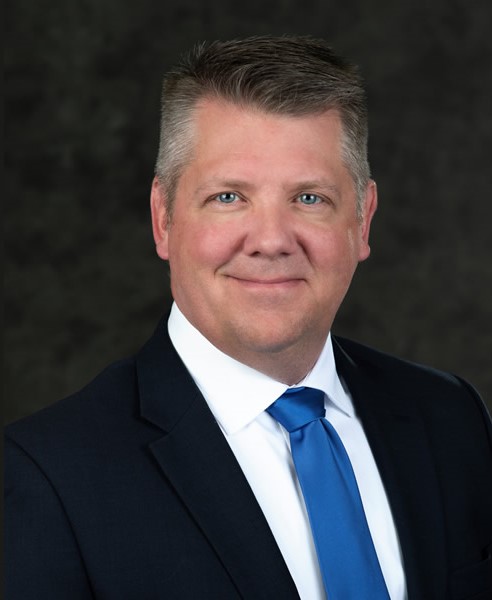
Official Statement on Andrew Holland Video
Author: Administrative Office
Date: 3/16/2018 12:50 PM
The County of San Luis Obispo's official statement regarding video footage depicting the circumstances around the tragic death of Andrew Holland.
The County is aware that a video depicting the circumstances surrounding the January 2017 death of Andrew Holland at County Jail has been released to the public. The County did not release the video, nor does the County know who released the video.
"The video footage is extremely painful to watch – what happened to Andrew Holland was a tragedy that impacts our entire community. Although we can’t bring Andrew back, our County has made, and continues to make, changes in response to this terrible event," said County Administrative Officer Wade Horton.
The County has adopted the Stepping Up Initiative to reduce the number of adults with mental illness in County Jail and is committed to preventing similar tragedies from happening in the future.
The County settled this heartbreaking matter with the Holland family for $5 million in July 2017.
In the year following Mr. Holland's tragic death, the County made the following significant changes:
- Destroyed the restraint chair and prohibited the use of such restraint chairs in the future. The Sheriff’s Office now prohibits use of the restraint chair and has updated its restraint policies to reflect this.
- Adopted the Stepping Up Initiative for the County of San Luis Obispo. The Board of Supervisors adopted the Stepping Up Initiative on October 10, 2017. Through this initiative the County stepped up and renewed its focus on preventing those with mental illness from entering jail, reducing the amount of time that an individual with mental illness stays in jail, and reducing the number of those who return to jail after being released.
- Commissioned an outside, independent evaluation of jail medical and mental health services. The County, through the office of County Counsel, hired Dr. Alfred Joshua, the Chief Medical Officer for the San Diego County Sheriff, to conduct an outside, independent evaluation of jail medical and mental health services. This evaluation identified a need for centralized oversight of inmate health care by the Sheriff’s Office and an evaluation of an outsourced model of health care services.
- Hired a new Chief Medical Officer for the jail to offer one point of contact for all medical and mental health care, increasing communication regarding inmates’ health. The County created a Chief Medical Officer role for County Jail in February 2018 and Dr. Christy Mulkerin officially assumed the permanent role on March 11, 2018. Whether the County continues to provide inmate medical services or outsources correctional health care to contracted providers, the Chief Medical Officer is a necessary role as it will oversee and direct those services and ensure quality and efficiency.
- Expanded mental health screenings on all incoming inmates to the jail. The jail health care team expanded mental health care screenings for all inmates entering the County Jail. Preliminary data shows an increase of referrals of inmates to mental health from 23% in December to 36% in January.
- Request for proposal issued for comprehensive jail medical and mental health resources. On August 22, 2017, the Board of Supervisors directed staff to research the option of contracting out jail medical and jail behavioral health care services. A Request for Proposal was released in February 2018. Once the County has received and vetted the proposals, the County will compare them to existing internal service programs and bring a recommendation to the Board on jail health care services sometime in summer 2018.
- Increased collaboration. Jail, medical and mental health supervisors and staff meet at least weekly to discuss and address the needs of medically and mentally ill inmates. This collaboration allows staff to make better informed decisions about inmate care and custody, and recommend procedural and policy changes.
- Increased training for deputies, medical and mental health staff at County Jail. Staff members receive ongoing training related to procedures when the mental health of an inmate begins to decline, and will continue to receive training related to improving their response to the medical and mental health needs of inmates at County Jail.
- Restricted amount of time in safety cells. The Sheriff’s Office has restricted the amount of time an inmate can spend in a safety cell to no more than 72 hours. After 48 hours, only a psychiatrist can extend the amount of time an inmate can spend in a safety cell, and only by 24 hours after an in-person assessment of the inmate. After 48 hours in a safety cell, an inmate must be either cleared for jail housing, cleared for an extended stay in a safety cell by a psychiatrist, admitted to the County Psychiatric Health Facility, or transported to the hospital.
- Jail Based Competency Treatment Program contract in process. In April 2017, the Sheriff’s Office contacted the Department of State Hospitals (DSH) regarding the possibility of having a JBCT program at the County Jail. This is a County-operated Competency Restoration Program that is partially funded by the State for individuals identified by the court as incompetent to stand trial for felony violations. The Sheriff’s Office learned about a regional JBCT program in San Bernardino. The Sheriff’s Office began sending inmates to that program in June 2017. Unfortunately, this program became unavailable, which reinvigorated talks with DSH to contract a JBCT program within San Luis Obispo County. Providing a SLO County-based JBCT program is expected to significantly reduce the wait time for restoration to competency and continuation of court proceedings.
- Changed Psychiatric Health Facility protocol to promptly accept inmates with declining mental health. The County’s Health Agency has standardized its criteria and changed its protocols for accepting an inmate at its 16-bed Psychiatric Health Facility. Mental Health staff will assess the inmate and, in an emergency, will administer emergency medications and/or work with the Psychiatric Health Facility to transfer the inmate for treatment. The Health Agency will make whatever arrangements are necessary to promptly accept the inmate at the facility.
- Made medical forms easier for families to submit online. An inmate’s family member can now easily access the Inmate Medication Form online and electronically fill it out and submit it to County Jail mental health and medical staff. The form is also available in English and Spanish.
- Coordinated care through a new Electronic Health Record (EHR). Implemented in October 2017, this integrated medical and mental health medical record allows all heath care team members to stay up to date on care provided by the whole heath care team. In addition, the Chief Medical Officer and nurse supervisors are able to check on patient care remotely.
Download the above list of changes the County has made to improve the treatment of inmates at County Jail in the last year.
